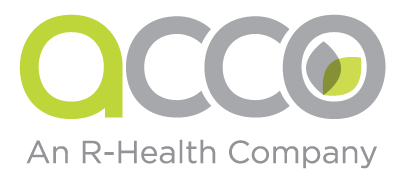R-Health Acquires the Advanced Comprehensive Care Organization (ACCO) Adding Accountable Care Capabilities

R-Health, a leader in innovative healthcare solutions, today announced its acquisition of the Advanced Comprehensive Care Organization (ACCO), a prominent Accountable Care Organization of independent family, pediatric, and internal medicine practices across the Greater Philadelphia region.
R-Health delivers more effective primary care and a better patient experience, while reducing the overall cost of healthcare. R-Health will now offer two value-based primary care solutions that serve employers, insurance companies, and TPAs: R-Health Direct Primary Care, an innovative membership-based approach to primary care, and R-Health Accountable Care.
ACCO is a direct outgrowth of the Southeastern Pennsylvania (SEPA) Chronic Care Initiative developed by the Governor’s Office of Health Care Reform. This collaborative brought together primary care practices to find ways to meet the goals of the triple aim of healthcare reform. Twelve of the independent private practices involved in the collaborative founded ACCO in 2010. The organization has since grown to be a leading voice for independent primary care practices in the region, with over 170 affiliated providers.
“By acquiring ACCO, we can expand our offerings, while remaining 100 percent committed to our core values of offering the very best convenient, personal, and effective primary care,” said Mason Reiner, CEO of R-Health. “Through ACCO we aim to deepen our partnerships with payers and health plan sponsors in the region as we work collaboratively to transform healthcare delivery through better care, better health, and lower costs for patients, particularly those with chronic conditions.”
As part of the acquisition, R-Health is adding key ACCO team members to its leadership team, including Auren Weinberg, MD, FAAP as Vice President, Clinical Strategy & Network Development; Sasha Ballen as Vice President, IT & Data Analytics; and Allan Crimm, MD as Medical Director, Accountable Care.
”Independent primary care physicians are uniquely positioned to thrive in the new paradigm of value-based healthcare,” commented Dr. Auren Weinberg, an ACCO Board member and the founder of Lower Bucks Pediatrics in Yardley, PA. “Joining forces with R-Health provides us with the practice optimization and technology infrastructure we need to continuously improve the quality and efficacy of the care we deliver to our patients while ensuring a vibrant future for independent primary care practices.”

